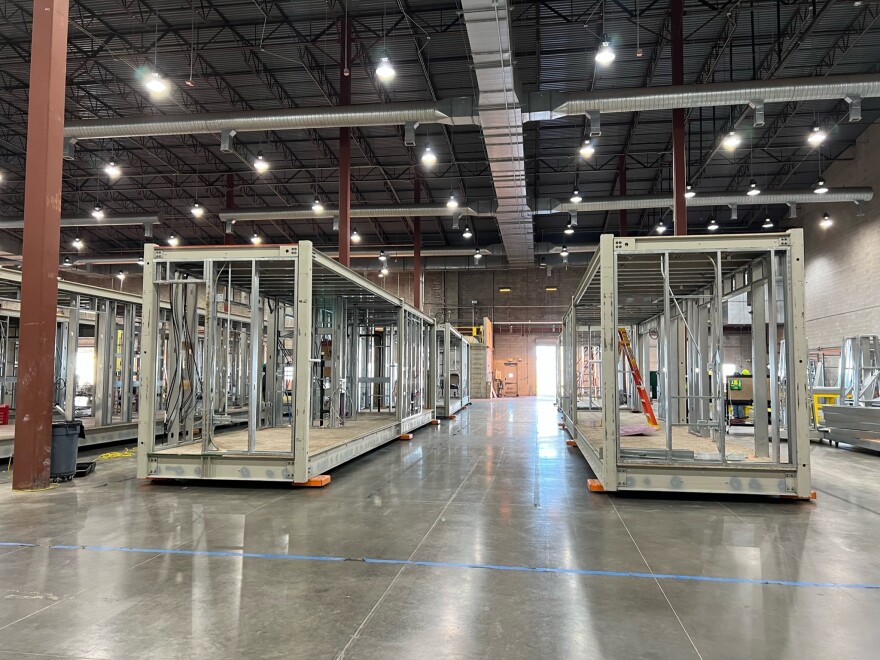It’s just human nature to wait until something goes wrong to seek help or advice. We wait until our back hurts so badly that getting out of a chair is painful before we go to a Chiropractor, we drive with the engine light on for a couple of weeks before we take our car to a garage or in my case, I waited until I could hardly walk, and my chest hurt before I went to a Cardiologist.

It’s just human nature for business owners and management to wait until the last minute to admit they have a problem with production, sales or profits. It’s just assumed that if one waits long enough that someone else will notice the problem which makes it easier for you to get the help or advice you need.
2023 is predicted by many financial experts to see a recession. Major or mild is still being discussed but it’s likely that we will have one.
If your company were to enter a new market or face a new competitor, the owner and upper management would “go to the mattresses”, a term from The Godfather movie which means to prepare for a lengthy war. The term also means that you need to take stock of what’s in your arsenal to make sure you’re ready to do battle and resupply anything that’s in not up to the desired levels.
Now we have to look at the coming recession as either a scrimmage or a full battle and take stock of our resources so you can take advantage of the positives, and avoid falling by the wayside as a recession casualty. Here are a few things you need to take stock of and fix if they are not up for the battle.
FINANCES:
Don’t wait until the recession is looking you in the eye before you take stock of your financial war chest. Establish a strict monthly budget and make sure your lines of credit will be available if you need them. Stay on top of your Receivables and stretch out your Payables but don’t forget to pay them or you will burn a necessary bridge.
Keep a sharp eye on expenses and if you can, consider adding 1-2% profit to your pricing. If you offer rebates or discounts to your builders or developers, consider what the impact would have on your bottom line if you discontinued them.
CUSTOMERS:
A few years back, one of the biggest modular factories in the country looked at all of their 160 builders and developers and divided them into three groups. The first group were customers that bought on a regular basis including small builders that continued to buy 6-8 homes every year and developers that bought at least one 12-16 module project a year.
The second group were the ones that bought very little but were still sent the current display packs for their showrooms at a cost of several hundred dollars. It was found that some of them hadn’t bought anything in over 5 years and two had actually passed away.
The third group included builders and developers that were pains in the ass. They bought homes and projects but complained about every single one of them. They fought to get reimbursed for drywall cracks and other small things that fall under their responsibility. They also had everyone’s office number, their cell number and called them all the time complaining. If was discovered that many of the projects and houses sold to this group were simply “built for practice” as the company made no profit on them.
Once the company took stock of its customers, it stopped doing business with the second and third groups leaving them with 42 good, strong and loyal builders and developers. When their competitors heard this, they fought to get the losers’ business and all the problems associated with them.
EMPLOYEES:
Redundancy is when an employer dismisses an employee because they no longer need someone to do that job. As the recession begins to take place, you should already have a list of the people and/or jobs that could be reduced or eliminated to meet demand.
Federal law does not require employers to provide laid-off employees with severance payments. The WARN Act only requires employers to make payments to employees that will be laid off if the employer fails to provide sufficient advance notice as required by the law. By planning ahead and deciding where job cuts will occur, you can give those employees sufficient notice.
Cutting employees that are redundant isn’t necessarily an indication your company is in trouble. It can and should mean you’ve taken stock of your needs in an organized way and found ways to help you weather the coming recession.

Trying to weather this alone is tough and that’s why Daniel Small and Gary Fleisher, the Modcoach, are hosting a Da Vinci Offsite Construction Roundtable entitled Preparing for a Recession starting Feb 9th.
With long-term planning and the understanding that no economic recession lasts forever, you can help your business survive any temporary setbacks.
But don’t wait any longer to start as this year will fly by quickly and if you are not prepared for the recession, your business could be seriously injured or killed.
Gary Fleisher, Contributing Editor



